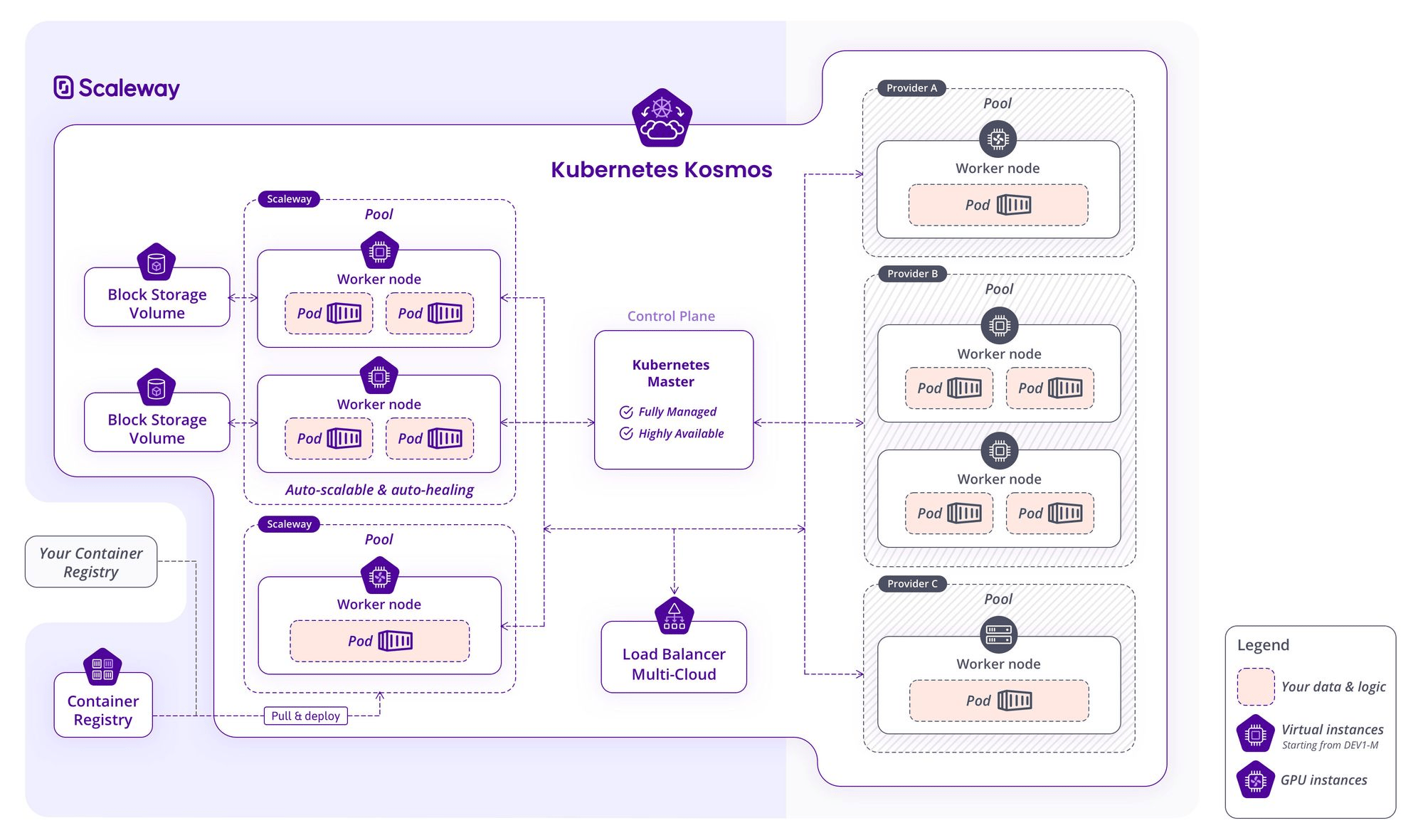
Multi-Cloud Kubernetes best practices
Using Kubernetes in a Multi-Cloud environment can be challenging and requires the implementation of best practices. Learn a few good practices to implement a concrete multi-cloud strategy.

With Cloud offers diversifying and business needs increasing, we notice that more and more companies are choosing to use services from different cloud providers.
Commonly called Multi-Cloud, this approach is becoming the norm in terms of Cloud native solutions architecture. It presents lots of new challenges for companies and infrastructure providers. Indeed, it offers the flexibility to choose the most appropriate solution for each specific need, regardless of its provider which also implies difficult strategic choices, both for services compatibility and access management.
Cloud providers tend to focus on time management as the primary benefit for using multiple Cloud services, accelerating the global go-to-production and/or go-to-market of any software solution. In reality, a Multi-Cloud approach forces companies to benchmark different solutions before making a single technical decision.
Flexibility and complexity simply cannot exist without one another.
All Cloud market players agree on the global definition of Multi-Cloud: using multiple public Cloud providers. On the contrary, the Hybrid Cloud implies the usage of public and private Cloud infrastructures.
While the overall meaning seems to be widely shared, the way Cloud providers and some software vendors choose to approach it can be extremely different.
In fact, so-called Multi-Cloud solutions can go from no-ops software, offering a proxy to multiple architecture providers, to complete Cross-Cloud solutions, where a single infrastructure or product gathers multiple providers' resources within the same shared network.
Even if the Cloud market trend goes toward Multi-Cloud, some Cloud providers seem reluctant to this evolution, moving more and more into a vendor lock-in strategy. While it allows for expertise and certification of engineers working on these providers' solutions, it also limits the choices and opportunities a company might want to explore.
Giving the freedom to choose the best Cloud services for each purpose and providing a customized experience for each software company is the promise of the Multi-Cloud approach.
On August 2nd 2021, Scaleway released Kubernetes Kosmos in Public Beta, providing a new perspective on Multi-Cloud. Kubernetes Kosmos allows you to gather any server or Instance within a same managed Kubernetes cluster, no matter where they are hosted.
The promise is simple: having a reliable Kubernetes Control-Plane based on Scaleway Kubernetes Kapsule, while using the Instances and servers corresponding to requirements and preferences of the customer.
On top of that, as Kubernetes Kosmos allows you to create clusters comprising nodes from different cloud providers, it also allows clusters to be multi-region.
To wrap up, Kubernetes Kosmos main features include:

Kubernetes Kosmos is based on Scaleway Kubernetes Kapsule architecture and uses a Multi-Cloud Container Network Interface (CNI) called Kilo for Cross-Cloud communication.
Kilo is based on Wireguard* which ensures a secure environment for cross cloud communication..
"WireGuard" is a registered trademark of Jason A. Donenfeld.
Multi-Cloud is not a market hypothesis anymore, but a reality where all providers must complete each other's offers and improve their standard integrations.
At Scaleway, the choice was made to have an open policy, with open source components. We wanted to welcome any customer from any provider and to offer them the best Kubernetes environment they could hope for. With a minimum of constraints including a very limited modification of their current configuration and no lock-in.
Scaleway Kubernetes Kosmos is a true Cross-Cloud Kubernetes engine, which we hope will lead the way towards network and device interactions at a global scale.

Using Kubernetes in a Multi-Cloud environment can be challenging and requires the implementation of best practices. Learn a few good practices to implement a concrete multi-cloud strategy.

Multi-cloud environment presents multiple perks: redundancy, reliability, customer coverage, etc. It also raises questions we will address here about the management and implementation of Multi-Cloud.

We will be using a Kubernetes Kosmos cluster, and deep-diving into specific multi-cloud Kubernetes concepts